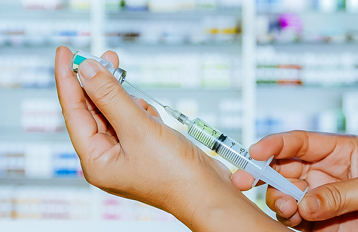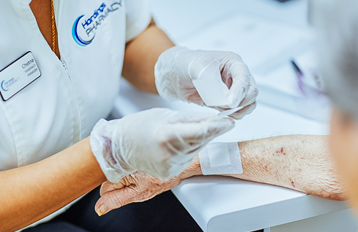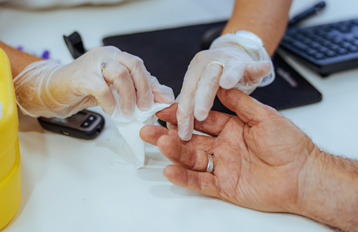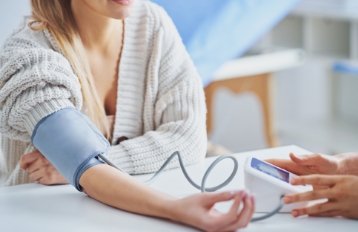As we age, our bones naturally lose density, making bone density testing crucial for monitoring and maintaining bone health. Many community pharmacies offer this service, taking bookings for a heel ultrasound to estimate your bone density. The clinic will provide comprehensive advice and follow-up care.
Bone density testing is a non-invasive procedure performed by a visiting agent, aimed at measuring bone density and strength, essential for individuals with risk factors such as osteoporosis, vertebral deformities or osteopenia (low bone density), as well as those post-menopausal and concerned about bone health. It plays a crucial role in identifying osteopenia or osteoporosis early, assessing fracture risk before a bone break occurs and determining bone density status, whether it's normal, low or indicative of osteoporosis.
The benefits of bone density testing:
Bone density testing at your community pharmacy empowers you to proactively manage bone health, get supporting advice and reduce fracture risks.
Find a pharmacy near you offering bone density testing.
OUR SERVICES What We Offer

Everyday health
Your local community pharmacy is your go-to destination for everyday health needs. From coughs and colds to travel health and mobility care, your community pharmacists can do more for you with expert advice and effective treatments to help you stay healthy and active. Explore our range of services to keep your family well every day.

Vaccination
Your community pharmacist can do more for you with a wide range of vaccines available, from flu and COVID-19 to essential travel immunizations. Visit your local pharmacy to stay healthy, protected, and up-to-date with your vaccinations.

Skin
Your community pharmacist is here to help you care for your skin, from managing common conditions like school sores, eczema, and acne to offering guidance on wound care, shingles, and sun protection. Visit your local community pharmacy for expert advice and effective solutions to keep your skin healthy every day.

Women's health
Community pharmacists are enhancing women’s health by providing comprehensive support at every stage – from conception and contraception to bone health and beyond.

Harm reduction & dependency
Your community pharmacist is here to help with harm reduction and dependency, offering support, resources, and more.

My medicines
Get expert support with your medications through comprehensive reviews and management services provided by your community pharmacist. From home medicine reviews and MedsCheck consultations to dose administration aids and staged supply, we’re here to help you every step of the way.

Chronic conditions
Get the support you need from your community pharmacist to manage chronic conditions. With expert advice, personalised medication management and tailored health services, community pharmacies empower you to take control of ongoing health challenges and improve your quality of life.

Testing & screening
Take control of your health with convenient testing and screening services at your community pharmacy. From regular monitoring to early detection, these essential services help identify potential health risks and support proactive care. Your pharmacist is here to guide you in staying informed and making health-conscious decisions for a healthier future.



